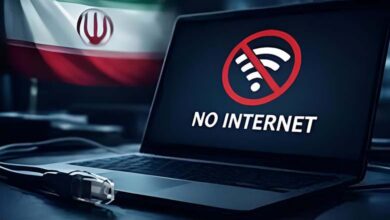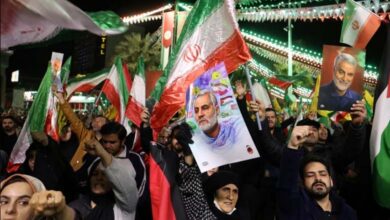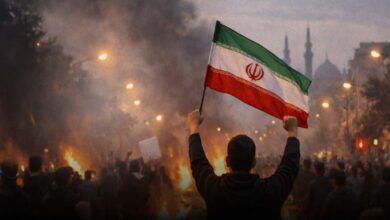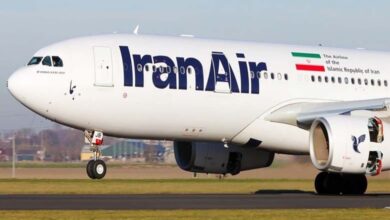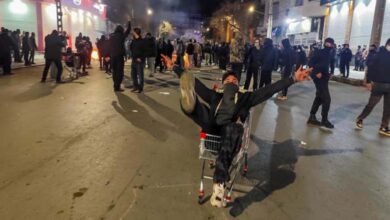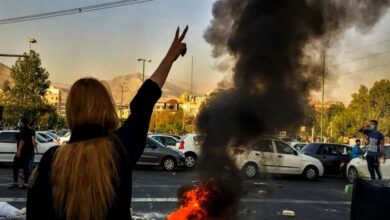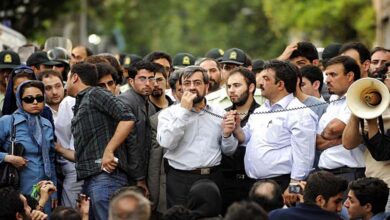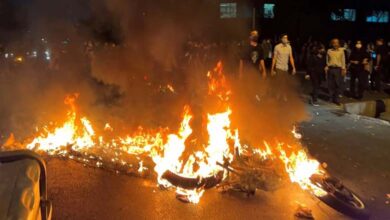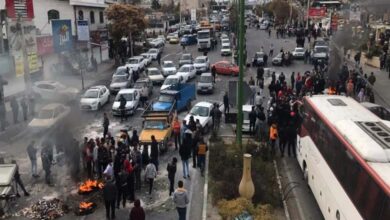Hardline MPs demand Khamenei reconsider nuclear doctrine
The MPs call for acquiring a nuclear bomb to counter Israel’s threats, which vowed to retaliate against Iranian strikes.
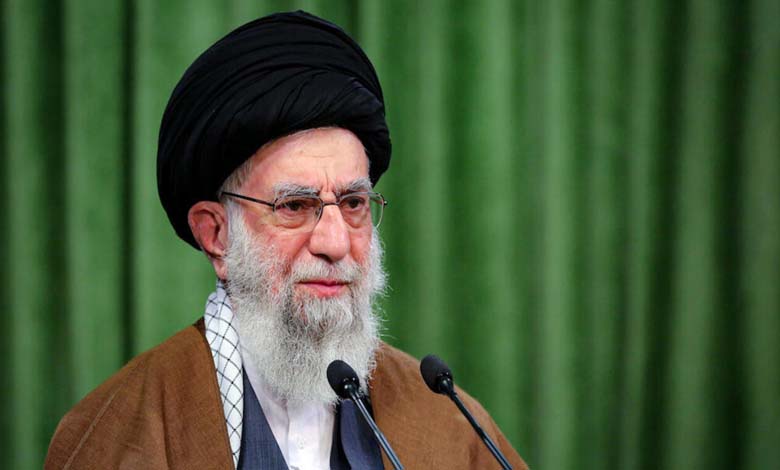
Hardliners in Tehran have raised their voices, urging the Islamic Republic to review its nuclear doctrine to acquire a nuclear bomb in order to counter Israel’s threats, which has vowed to retaliate against Iranian strikes.
-
Associated Press: Iran Develops its Nuclear Program by Installing a Series of Centrifuges
-
Iran Warns Atomic Energy Agency Against Issuing a Resolution Against Its Nuclear Program
On October 1st, Iran launched around 200 ballistic missiles at Israel, in what Tehran described as retaliation for the death of Ismail Haniyeh, the leader of the Palestinian Hamas movement, in an attack in Tehran blamed on Israel, as well as for the assassination of Hezbollah’s Secretary General Hassan Nasrallah and an Iranian general in an Israeli raid on southern Beirut.
Following this Iranian missile strike, the second in less than six months, Israeli Defense Minister Yoav Galant threatened to launch a “deadly, precise, and surprising” attack against Iran.
In April, for the first time in its history, Iran conducted a direct military strike against Israel in response to an airstrike that destroyed the Iranian consulate in Damascus, an attack attributed to Israel.
-
Gaza war diverts Washington from curbing Iran’s nuclear program
-
Before the expiration of UN Security Council sanctions, Congress is discussing a new bill imposing sanctions against Iran’s nuclear program
On Wednesday, more than thirty Iranian parliamentarians called for a revision of the Islamic Republic’s nuclear doctrine, in a letter addressed to the Supreme National Security Council, according to local media.
These MPs urged Supreme Leader Ali Khamenei to reconsider his fatwa prohibiting the “use” of nuclear weapons.
MP Hassan Ali Khalghi Amiri said, “Neither international organizations, nor European countries, nor the U.S. can control the Zionist regime, which commits crimes at will,” while his colleague Mohammad Reza Sabaghian argued that “Iran’s possession of nuclear weapons is the way to achieve nuclear deterrence.”
-
Iran’s Nuclear Program Has Crossed ‘All Red Lines’, Says Israel PM
-
Information’s about the Iran’s nuclear program
According to local media, a draft law aimed at “expanding the nuclear industry” was submitted to parliament, without further details.
A similar debate arose in the spring following the unprecedented Iranian strike on Israel, which experts say is the only nuclear power in the Middle East.
Kamal Kharrazi, a senior advisor to Khamenei, stated that the Islamic Republic “could reconsider its nuclear doctrine if Israel dared to threaten Iran with a nuclear weapon.”
After recent Israeli threats, U.S. President Joe Biden warned his ally against any attempt to target Iranian nuclear facilities, stressing his opposition to strikes on these sites.
Tehran emphasized that any attack on its infrastructure would provoke “an even stronger response.” A general in the Iranian Revolutionary Guard warned that any strike on nuclear or energy facilities would cross a “red line.”
-
“Telegraph”: Iran May Feel That Building a Nuclear Bomb Is Its Only Option Now
-
New North Korean Escalation: Kim’s Message from Inside a Nuclear Facility
According to Iranian political analyst Maziar Khosravi, the MPs’ letter is “primarily a strong message directed at Israel’s Western supporters” to “try to influence them.”
However, the decision to alter the nuclear doctrine remains with the Supreme Leader, not the MPs, Khosravi said, considering any change unlikely in the short term.
But Khosravi believes that “if Israel were to attack nuclear facilities, Iran might withdraw” from the United Nations’ Nuclear Non-Proliferation Treaty. Iran has repeatedly asserted it does not seek to possess a nuclear bomb.
Iranian President Masoud Bazhkyan called for “a world free of nuclear weapons and a Middle East free of weapons of mass destruction” at the UN General Assembly in September.
He also emphasized in an interview with the American news network CNN that “Iran is not seeking to acquire a nuclear bomb.”
-
Washington Secretly Warns Tehran of Suspicious Nuclear Activities
-
What Are the Key Expected Scenarios for the Nuclear Deal After the Iranian Elections?
Since taking office in July, Bazhkyan has been working to revive the 2015 nuclear deal to ease U.S. sanctions that weigh heavily on Iran’s economy.
This agreement was supposed to provide a framework for Iran’s nuclear activities in exchange for the lifting of international sanctions, but it collapsed after the unilateral U.S. withdrawal under former Republican President Donald Trump in 2018. Since the deal’s failure, Iran’s nuclear program has made significant progress.


